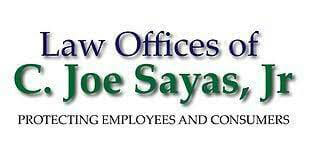Signing as an independent contractor doesn’t make you one

Nichelle Duffey worked as an in-home caregiver for Tender Heart Home Care Agency, LLC, a placement agency for caregivers. Duffey signed an agreement with Tender Heart stating that she is an “independent contractor” and “is in the business of providing care giving services in dwellings…” Rate sheets attached to the contract between Duffey and Tender Heart state the standard hourly rate for all shifts, but the rate charged to clients varied depending on each client’s needs.
As a caregiver, Duffey’s main tasks were to provide companionship, care, hygiene assistance, medication, housekeeping, meal preparations, transportation, and other services to clients. Clients pay Tender Heart for the caregiver’s services. Tender Heart then pays the caregiver with monies received from its clients, minus Tender Heart’s fees.
Tender Heart emailed work opportunities to Duffey, who was free to reject offers, and which she sometimes did. Duffey was also free to contract with other agencies, and she in fact was working for others.
The contract also provided that the relationship between a caregiver and client could be terminated only by those parties, not Tender Heart. Duffey’s contract with Tender Heart, however, could be terminated by either party with notice or in the event of a material breach by Duffey.
Duffey terminated her contract and sued Tender Heart for unpaid overtime wages under the Domestic Worker Bill of Rights (“DWBR“). This law entitles domestic work employees to overtime wages for all hours worked over nine hours per day or 45 hours per week.
Tender Heart asked the court to dismiss Duffey’s claims arguing that Duffey was not entitled to overtime pay because she was an independent contractor.
After the trial court’s dismissal, the case reached the Court of Appeal, which explained that the DWBR law contains two alternative definitions of employment: (1) when the hiring entity exercises control over the wages, hours, or working conditions of a domestic worker; or (2) when a common law employment relationship has been formed.
On whether Tender Heart “exercises control over the wages, hours, or working conditions of a domestic worker”—the court concluded that a material dispute of fact existed because Tender Heart potentially exercised control over Duffey’s wages as it seemed up to Tender Heart to decide how much caregivers are paid.
The court also noted that a common law employment relationship existed because Tender Heart contracted clients, assessed clients’ needs, matched caregivers and clients, and negotiated rates charged to clients. This constitute substantial control over the details of the caregiving business. Tender Heart argued that it was not in the business of caregiving and was instead a referral agency. However, the court disagreed, reasoning that without caregivers, Tender Heart would not be able to perform its contracts with clients and carry out its business operations.
Duffey’s employee status seems to be supported by the facts that 1) her duties as a caregiver did not require special skills or training; 2) Tender Heart’s ability to decline to make additional referrals to caregivers is similar to the ability to terminate at will; 3) there was no evidence that Duffey “held herself out in business”; 4) that caregiving required “specialized tools,” or 5) that Duffey had “an opportunity for profit or loss.”
Workers are better protected if employers classify them as employees. It is in this light that courts, and most recently, the California Legislature, with Assembly Bill 5 as discussed in our prior article, have strengthened this protection.
The Law Offices of C. Joe Sayas, Jr. welcomes inquiries about this topic. All inquiries are confidential and at no-cost. You can contact the office at (818) 291-0088 or visit www.joesayaslaw.com. [C. Joe Sayas, Jr., Esq. is an experienced trial attorney who has successfully recovered wages and other monetary damages for thousands of employees and consumers. He was named Top Labor & Employment Attorney in California by the Daily Journal, consistently selected as Super Lawyer by the Los Angeles Magazine, and is a Presidential Awardee for Outstanding Filipino Overseas in 2018.]

